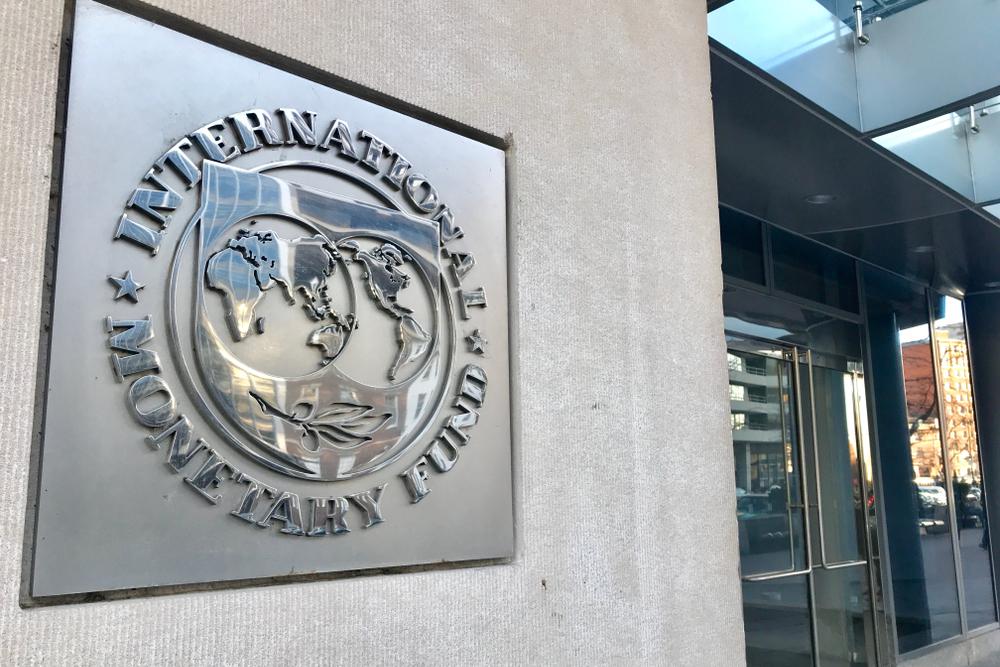Updated 4.35pm with PN response
Malta’s economic growth is “gradually reaching cruising speed” and is now increasingly reliant on domestic demand, the International Monetary Fund has noted in an assessment that warns that slow progress in addressing structural weaknesses could threaten the country’s financial stability.
IMF staff noted that Malta must tackle a series of key challenges if it is to sustain the strong economic performance of the past years, which included high GDP growth, low unemployment and strong fiscal buffers.
The recommendations are part of an IMF mission’s concluding statement. During IMF missions, a team of economists from the international organisation visit member states to assess their economies, meeting with government and central bankers in the process.
In a statement, the Finance Ministry noted that the IMF’s praise of the Maltese economy’s “strong performance” came just days after the European Commission had said that it expected Malta to continue to perform strongly in 2020 and after rating agency Moody’s had confirmed the country’s rating.
The IMF highlighted three key issues which the country must tackle:
1. Anti-money laundering framework 'deficiencies'
The IMF said it was of “critical importance” that AML legislation was strengthened and enforced, noting recommendations made by the Council of Europe’s Moneyval.
Moneyval has warned that Malta risks being blacklisted unless concerns are addressed, and Finance Minister Edward Scicluna has also acknowledged the need to “score more goals” when it comes to financial crime.
Weaknesses in this sector could lead to further problems with acquiring correspondent banks, make Malta less attractive to foreign investment and threaten financial stability, the IMF noted.
Local banks, most notably Bank of Valletta, have struggled to keep hold of correspondent banks in recent years.
 The MFSA has registered 'commendable' progress but remains under significant strain, the IMF said.
The MFSA has registered 'commendable' progress but remains under significant strain, the IMF said.“Slow progress in addressing structural weaknesses, including in the AML/CFT framework, may undermine long-term growth prospects and potentially threaten financial stability,” the visiting IMF mission said.
The IMF said Malta’s focus should be on improving “and demonstrating” the effectiveness of its AML/CFT framework, with a particular focus on strengthening the understanding of risks related to banks and high-risk sectors such as gaming, cryptocurrencies or the cash-for-passports IIP scheme.
Malta’s financial regulator, the MFSA, was registering “commendable” progress, the IMF said, but would need to have its resources bolstered and long-term independence assured. The regulator also needed to introduce better frameworks for bank insolvency and liquidating failing banks, the IMF said.
2. Infrastructural pressures due to inflows of foreign labour
IMF experts noted that economic growth had relied on large inflows of foreign labour, which brought with it pressures on housing, infrastructure and natural resources.
The country has added tens of thousands of foreign workers to its population over the past years, with more needed to fill labour gaps.
Malta would need to improve access to affordable housing to relieve bottlenecks and ensure sustainable growth, the IMF said, and it encouraged the government to complement housing benefits with such policies.
 Workers in Attard. IMF analysts warned that infrastructural investment would need to be adequately managed as it increased.
Workers in Attard. IMF analysts warned that infrastructural investment would need to be adequately managed as it increased.The IMF noted progress in upping public investment in infrastructure and said that focusing on waste, renewable energy and public transport were all important.
As public investment increased, the country’s challenge would now be to improve management of these investments to ensure better efficiency, the IMF said.
The IMF gave some examples of what it meant by that: appraisals of public investment projects, ensuring cost-benefit analyses for major projects and addressing weaknesses in public procurement systems.
3. Fiscal risks and a reliance on corporate taxes
Malta has significantly improved the state of its public coffers in recent years, the IMF said, with public debt coming down and the country registering consecutive annual surpluses.
The IMF also noted that Malta’s banking system was well-capitalised, and it praised the Central Bank’s decision to tighten home loan criteria last summer, saying it should consider going a step further and refining the measures to “reduce expemtions in the most speculative part” of the real estate market once it had enough data to assess the impact of the 2019 changes.
But Malta remains exposed to external risk factors such as changes in international tax regimes, with the country heavily reliant on corporate income tax revenues and “substantial” contingent liability risks.
 IMF headquarters in Washington D.C. Photo: Shutterstock
IMF headquarters in Washington D.C. Photo: ShutterstockThe country needs to actively review options to reduce its reliance on corporate taxation, the IMF said. It should also implement a new legal framework for managing government guarantees and work to make fragile public corporations more financially sound.
Malta’s aging population continues to be a concern, and the IMF said that measures to boost the number of women and elderly in work should be sustained.
But that might not be enough: the IMF also recommends a pension age increase, saying “the ongoing periodic review of the pension system should comprise new measures to increase the effective retirement age”.
Report 'confirms Opposition concerns'
In a statement, the PN said the report reflected the Opposition's concerns on foreign labour dependency and failure to address money laundering concerns.
"Despite Government's continous promises that it has taken Moneyval's recommendations seriously, the IMF issues another critical assessment of Malta's approach towards the criminal activity of money laundering," the PN said.
"The IMF warns Government that 'if not tackled in a timely manner, deficiencies in Malta's AML framwork could result in fruther presurres on correspondent banking, damage the country's attractiveness for investment and threaten financial stability'.
"To this end, the IMF calls Government and regulatory authorities to urgently address the shortcomings identified by Moneyval, improve the supervision of banks and other high risk sectors and ensure that measures taken in the sector are properely enforced."